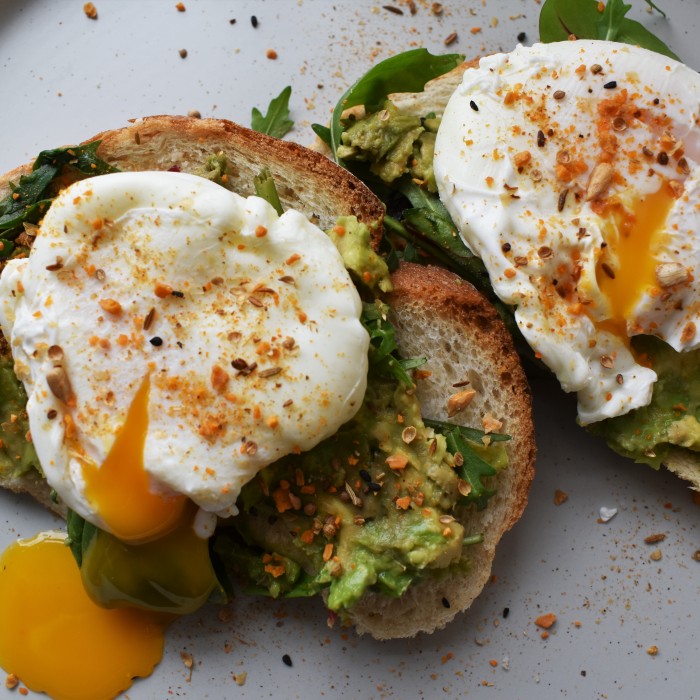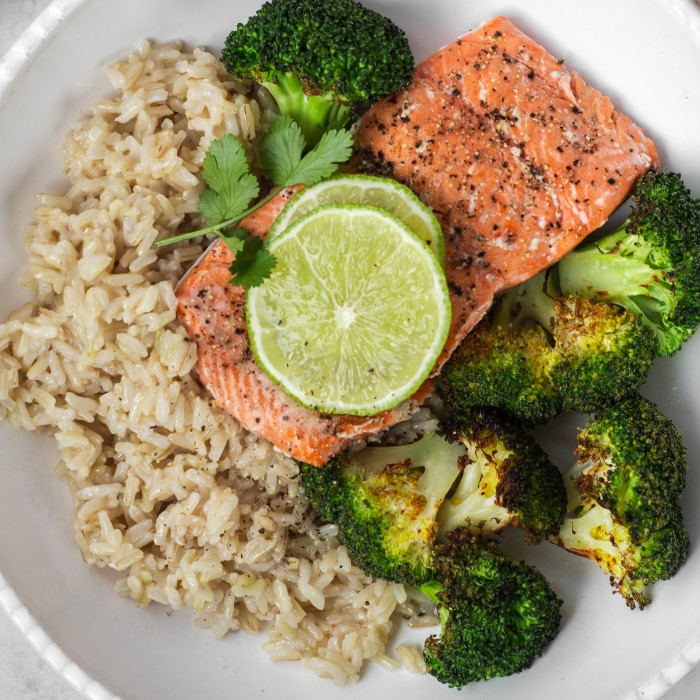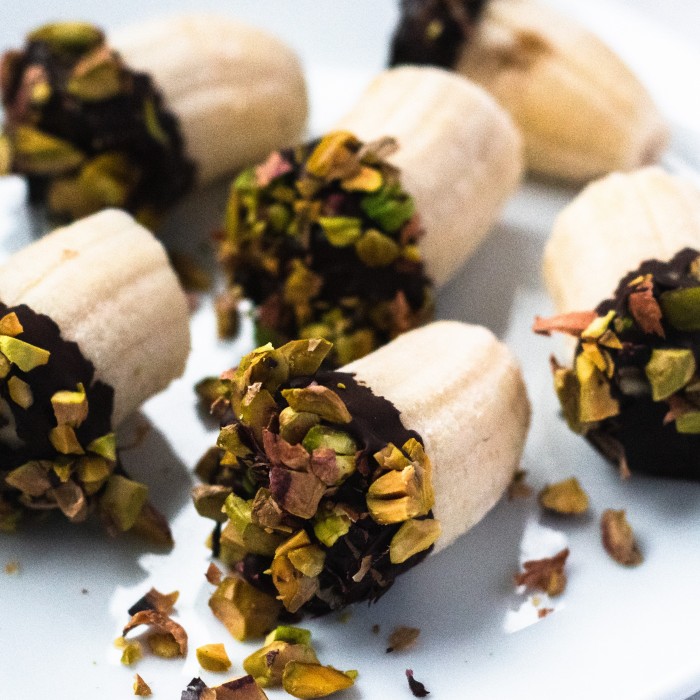5 Foods to Boost Your Mental Energy
By Tiffany Williams, BSc PG.Dip SENr5 Minute Read

5 Minute Read
Ever find yourself struggling to think clearly or make important decisions as the day goes on? Or do you perhaps find that your memory sometimes fails you mid-task? If this sounds familiar, you may be struggling with your mental energy. The good news is there are plenty of delicious, nutritious foods that you could consider including in your diet to naturally boost your mental energy, without the need for expensive supplements or a huge overhaul of your diet.


Risk vs reward
As with many other aspects of health and performance, food has a huge capability to influence mental energy - for better or for worse. As you would likely expect, diets containing a large proportion of ultra processed, low-quality foods such as: packaged cakes and pastries, microwave meals and takeaways are detrimental to mental energy. These types of foods typically lack the nutrients that underpin healthy cognitive (mental) function and can in fact cause fluctuations in energy levels when eaten frequently. There are also links to ultra processed foods and chronic inflammation, which is in turn a risk factor for cognitive health conditions such as Alzheimer’s and Parkinson’s diseases over time.
On the other hand, a diet based on high-quality, minimally processed foods such as lean meats, fish, vegetables, wholegrains, fruits and sources of healthy fats contains an array of important nutrients for optimising cognitive function and protecting the brain from degeneration over time. Read on to find out which foods are best for boosting mental energy, and how you can easily add these into your diet in ways that you enjoy…
1. Oily fish: including salmon, mackerel, trout, sardines. Oily fish are a great source of omega 3 fatty acids (more so than white fish, such as cod and haddock), which can help to form brain cells, form a protective layer around the brain and also help to reduce inflammation. In turn, these benefits can help to boost memory, learning rate and overall mental health.
Recommended intake: 2-3 palm-sized servings per week.
Recommended usage: serve up a salmon, trout or mackerel fillet as part of a main meal with a helping of roasted herby vegetables and cous cous, or consider making a light and refreshing sardine pasta salad.
2. Wholegrains: including quinoa, bulgur wheat, wholewheat pasta, wholemeal, rye and spelt bread, bran cereals, oats etc. Wholegrains are less-processed than refined grains and still contain their outer layer (the bran). This makes them more challenging for the digestive system to break down, which leads to a steadier release of the energy that they contain and therefore longer-lasting energy for the brain to utilise.
Recommended intake: daily, use wholegrains as your preferred type of carbohydrate in main meals where possible.
Recommended usages: start off your day with a hearty bowl of porridge or overnight oats for long-lasting mental energy through the morning. Enjoy a delicious chicken & quinoa salad as a light lunch, or try egg-fried vegetable rice made with brown rice.
3. Avocados: this creamy, fibre-packed fruit is a great source of mono- and poly-unsaturated fats, which provide slow-releasing energy to sustain mental work. Avocados also contain antioxidants, which are important for protecting cells - including brain cells - from free-radical damage.
Recommended intake: 1/2 medium avocado, 2-3 times per week
Recommended usages: mash up an avocado with a squeeze of lime juice and pinch of sea salt and black pepper for a quick guacamole dip, slice 1/2 an avocado and enjoy on toast with a couple of poached eggs for breakfast, or throw the flesh of 1/2 an avocado into a smoothie for a creamier texture.
4. Dark chocolate: contains flavonoids, an anti-inflammatory compound that can help to prevent damage to brain cells and slow the rate of degeneration. Dark chocolate also contain compounds that are thought to increase secretion of dopamine, the ‘happy hormone’ to help boost mood. Note: we’re talking about 70% dark chocolate and above, not milk or white chocolate unfortunately!
Recommended intake: enjoy a 30-40g serving twice per week
Recommended usages: serve up a couple of squares of your favourite dark chocolate with a handful of fresh strawberries for an easy dessert, melt dark chocolate and add a light drizzle to porridge or pancakes for breakfast, or (stay with us on this one!), try adding a square of dark chocolate to homemade chilli for a deeper, richer flavour.
5. Eggs: the humble egg, a staple in diets the world over, is a good source of choline, which is vital in the formation of acetylcholine - a neurotransmitter (signalling chemical) that relays messages from the brain to nerves around the body. For optimal reaction time, memory and the normal function of the nervous system, acetylcholine is crucial.
Recommended intake: up to 3 eggs per day
Recommended usages: whip up a quick veggie omelette for breakfast or as a light lunch, serve up scrambled eggs with avocado and rye toast for a simple post-workout meal, or why not bake a big ham & tomato frittata to share around the whole family?
Remember, this is just a snapshot of the huge range of nutritious foods that can help to enhance mental energy - the list goes on! But if your diet is typically lacking in most of the foods we’ve mentioned in this article, then try introducing one or two initially and see how you feel.
If you struggle with your mental energy and would like to learn more about how we can help you improve this, please reach out to us via the Contact Us section of our website and one of our expert practitioners will be happy to assist you.
Puri, S., Shaheen, M., & Grover, B. (2023). Nutrition and cognitive health: A life course approach. Frontiers in Public Health, 11. https://doi.org/10.3389/fpubh.2023.1023907
Spencer, S. J., Korosi, A., Layé, S., Shukitt-Hale, B., & Barrientos, R. M. (2017). Food for thought: how nutrition impacts cognition and emotion. Npj Science of Food, 1(7). https://doi.org/10.1038/s41538-017-0008-y
The Edge HPL is not responsible for any specific health or allergy needs that require supervision nor any adverse reactions you may have to the advice we provide - whether you have followed them as written or have modified them to suit your dietary requirements.
Any nutritional advice and information provided by The Edge HPL is based on our own experiences, research and knowledge. The information provided is not to be used in place of proper medical advice. The Edge HPL and its employees and representatives are not medical professionals, do not hold any type of medical licenses or certifications and do not practice medicine. If customers have any medical questions regarding any advice or information provided by The Edge HPL, they should consult their physician, or another healthcare professional. Please also refer to our Standard Business Terms and Conditions, which can be found on our website.